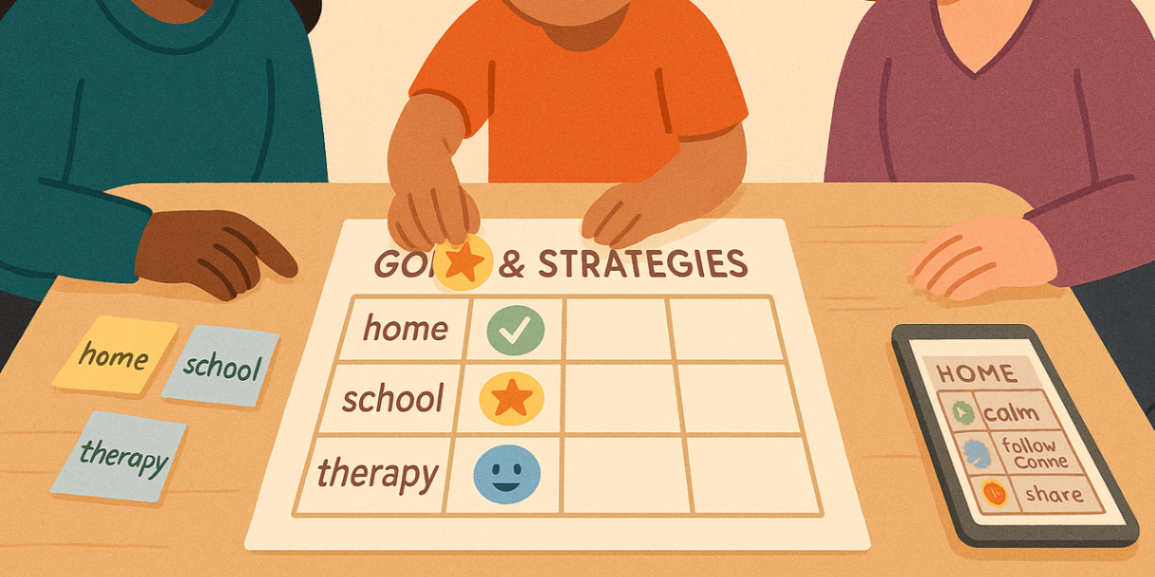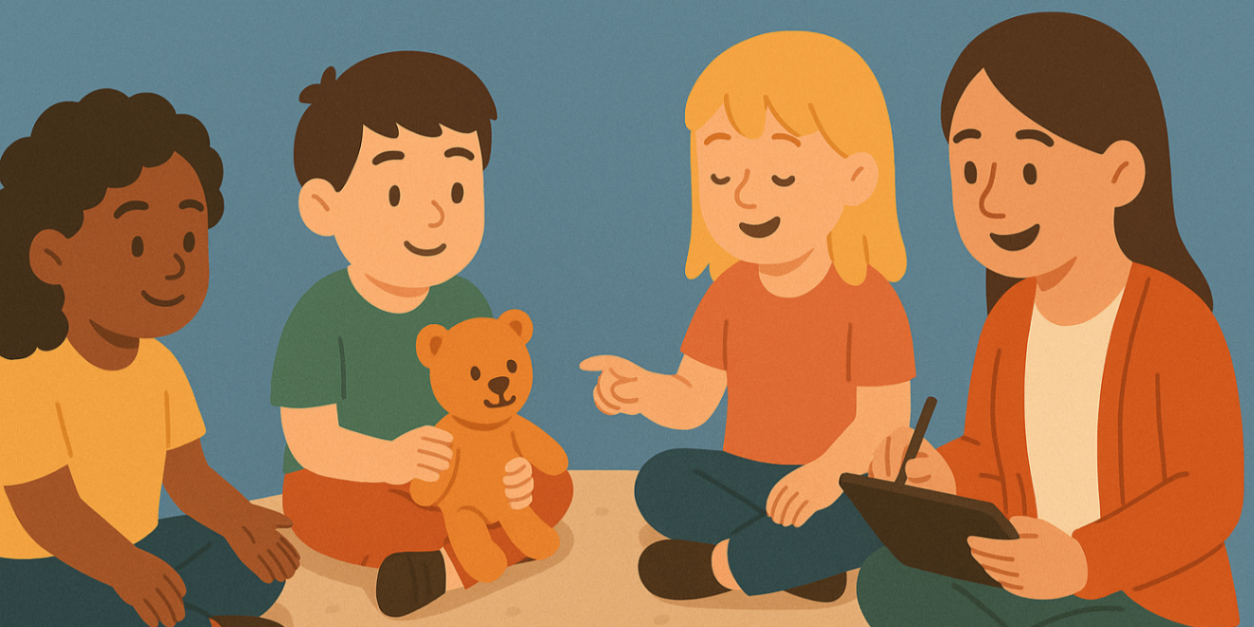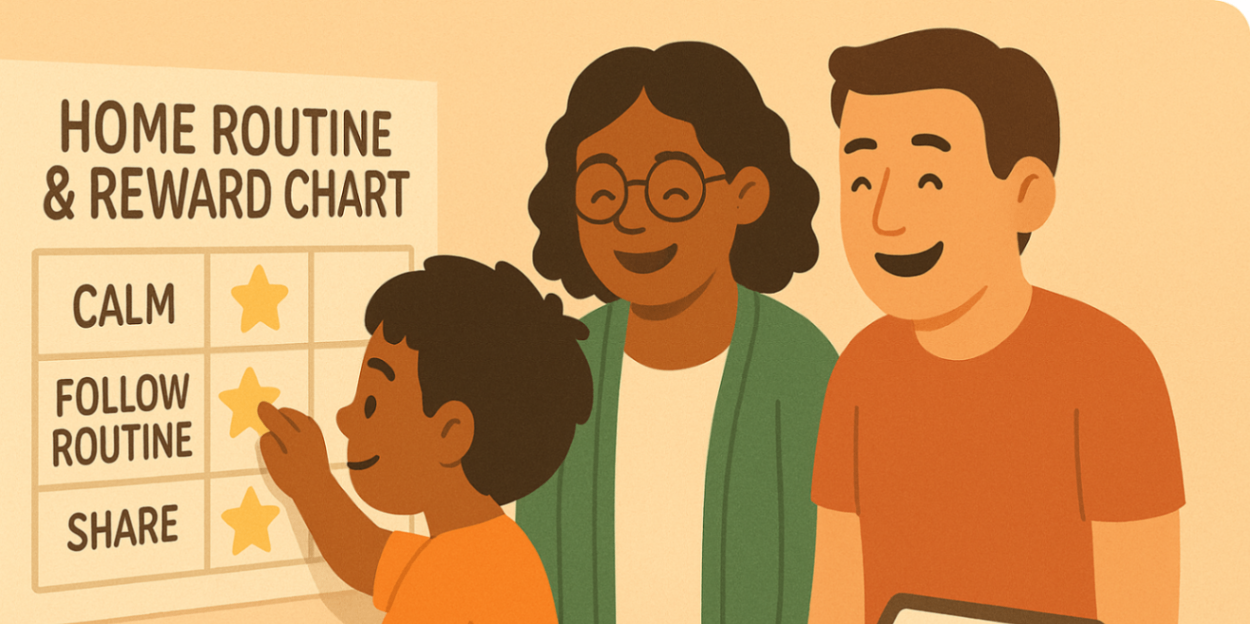
building positive skills with ndis behaviour therapy liverpool
22 August, 2025
Key Highlights
-
Discover how NDIS Behaviour Therapy Liverpool helps children manage emotions and improve their quality of life.
-
Learn the steps to access funding through the National Disability Insurance Scheme for essential therapy services.
-
Understand the vital role of a qualified behaviour support practitioner in developing new skills and reducing behaviours of concern.
-
Explore how NDIS behaviour support Liverpool plans focus on building emotional regulation and communication abilities.
-
See how collaboration between families and therapists creates a supportive environment for lasting positive change.
Introduction
Dealing with childhood behavioural challenges can be hard for families. The National Disability Insurance Scheme (NDIS) gives families a way to get help through behaviour therapy for children Liverpool. In Liverpool, these services focus on giving your child a supportive environment. Your child can learn new skills and grow in this place. With proven methods, NDIS Behaviour Therapy Liverpool works to help with behavioural challenges in daily life. It helps your child become more independent and feel better overall. This guide shows you how to get access to these resources for your family.
Understanding Positive Skills Development Through Behaviour Therapy

Behaviour therapy is a plan that helps bring positive change by teaching new skills. In Liverpool, positive behaviour therapy Liverpool focuses on helping children build social skills and learn emotional regulation. It is a team effort. The therapist, your child, and your family all work together. They try to find out what causes certain behaviour. The main aim is not only to manage behaviours of concern but also to give your child what they need for long-term happiness and a better quality of life.
Behaviour therapy is for any child who may find it hard to learn, make friends, or to get through their day. The practitioner will get to know your child's needs and make a plan just for them. This plan helps your child communicate better and learn new things. When we focus on what the child can learn, it helps your child feel good, lowers their stress, and supports them to be part of the world around them. All of this leads to a real boost in their quality of life.
Social Skills, Emotional Regulation, and Communication Growth
A key part of NDIS Behaviour Therapy Liverpool is helping your child learn better social skills. The aim is to teach them how to act kindly around other children, notice and react to social signals, and make real friends. Kids can get more sure of themselves when dealing with others by joining in special activities and getting help from the team.
Emotional regulation is also a big part of this process. Therapists use ways for your child to better know and handle what they feel. This can lower stress and worry, and helps them deal with tough times in a healthier way. NDIS behaviour support Liverpool strategies help kids use these new skills every day.
Being able to talk about needs and feelings is important for growth. Behaviour therapy for children Liverpool is open to kids who have autism or other needs under NDIS. It allows them to say what they want and need in a simple manner, which can help lower unwanted behaviours. The support covers:
-
Working on ways to talk, like through words and actions.
-
Finding new ways to show uncomfortable feelings rather than acting out.
-
Helping your child become surer when sharing their thoughts and feelings with other people.
How behaviour support plans translate assessment into skill-building
The journey to positive change starts with a consultation. The behaviour support practitioner meets with your family. They work to understand your child's strengths, needs, and the challenges they have. This is the first step and helps gather the right information. With this, the practitioner makes a behaviour support plan that fits your child. The plan acts like a guide and shows what strategies and goals to use for your child's therapy.
After the assessment, the behaviour support plan turns ideas into steps you can use. This plan helps teach new skills to your child. Some skills might be about how they talk to people or how they manage big feelings. You will need the assessment papers if you want NDIS-funded therapy. Include these papers in your NDIS application or plan review. The support plan gives clear help and makes sure everyone is doing the same thing for your child. It helps track progress and makes sure goals are reached. This way, the behaviour support plan helps your child and your family work toward positive change.
Evidence-based strategies to build positive skills
Effective behaviour therapy relies on evidence-based strategies that have been proven to work. The core of many programs in Liverpool is Positive Behaviour Support (PBS), a framework that seeks to understand the reason behind a behaviour and teach a more appropriate alternative. Instead of focusing only on the behaviour itself, PBS looks at improving a person's overall quality of life by creating supportive environments and teaching new skills.
Therapists in Liverpool offer various programs, including individual counselling, parent coaching, and group workshops, all grounded in PBS principles. These services are designed to be proactive, aiming to prevent challenging behaviours before they occur. The focus is always on building capacity and empowering your child. As Dr. Brian Iwata, a pioneer in the field, noted, the goal is to make problem behaviour "irrelevant, inefficient, and ineffective."
|
Strategy Type |
Description |
|---|---|
|
Functional Behaviour Assessment (FBA) |
Investigates the root causes and triggers behind specific behaviours to inform the support plan. |
|
Proactive Strategies |
Teaches new skills, such as communication or emotional regulation, to replace challenging behaviours. |
|
Environmental Adjustments |
Modifies the child's surroundings at home or school to reduce triggers and promote calmness. |
|
Parent/Carer Coaching |
Equips family members with the tools and techniques to consistently support the child's progress. |
Eligibility and Access to NDIS-Funded Behaviour Therapy
Getting NDIS-funded behaviour therapy starts when you find out if your child can get it. If your child has a disability that makes daily life hard and will not go away, they may get ndis funding. This money goes into your child’s support plan. You can then use it to pay for therapy services that are approved.
To get these therapy services, your ndis plan needs to cover ‘Improved Relationships’ or ‘Capacity Building’. A family member or your support coordinator can help you find ndis providers in liverpool. These providers work with you to make sure the services match the goals set in your child’s support plan.
Now, let’s look at what you need to qualify and find out what types of help you and your child can get.
NDIS Criteria for Children and Families in Liverpool
To meet the NDIS criteria for behaviour support, your child needs to have a disability that leads to a big effect on how they do things each day. This can include children who have a developmental delay, autism, or mental health issues that cause challenging behaviour. The main focus is on how the disability impacts their daily life.
The NDIS Commission is in place to make sure these behaviour support services are safe and work well. It is important to show that your child needs special help to learn new skills and to reduce behaviour that could be risky for them or other people. An allied health professional is usually the one who does this assessment.
Early intervention for behaviour support is very important in the NDIS for families in Liverpool. The scheme knows that starting help early can lead to better outcomes over time. To be eligible, you need the following:
-
Evidence of a developmental delay or disability.
-
Proof that the behaviour support will help your child reach their goals.
-
Confirmation that the support is good value for money under NDIS guidelines.
Early Intervention Supports Available Under NDIS
Early intervention is an important part of the NDIS. It helps young people get support as soon as someone sees there is a need. The supports are there to help with a child's disability and also help build new skills for the future. This way of acting early can help a lot with behavioural challenges. It is also good for mental health.
There are many NDIS-approved support practitioners who help with behaviour in Liverpool and nearby areas. These people are trained to give early intervention for kids and their families. Every plan is made for what the child and family need. They stay in touch with you. You can work together to find what works at home or at school.
Early intervention is set up to give children and families tools that help from day one. The following supports are often available:
-
Individual therapy sessions to help children grow their skills.
-
Training and coaching for parents and other family members.
-
Working together with schools and preschools for the best results.
NDIS Behaviour Therapy Programs Offered in Liverpool

In Liverpool, you can get many types of NDIS behaviour therapy programs that fit different needs. A registered NDIS provider will have therapy services that are led by a skilled behaviour support practitioner. You will often get a full assessment, a specialist behaviour support plan, and ongoing coaching for you and your child. Providers like Daar Services are known to make these programs personal for every child.
The programs are flexible. Sessions can be at a clinic, at your home, in your child’s school, or even online. The main goal is to give real and helpful support that you and your child can use in daily life. Whether you want an intensive program or just need some support now and then, you will find a registered NDIS provider in Liverpool. These NDIS providers give specialist behaviour services that help your child grow in confidence, resilience, and other good life skills.
How NDIS supports (funding & plan types) typically cover PBS
Your NDIS funding lets you get behaviour support, including Positive Behaviour Support (PBS). You usually find this support under the 'Capacity Building – Improved Relationships' part of the NDIS support plan. This bit of funding is set aside for therapy services that help you learn skills to work with other people and cope with things that make daily life hard because of your disability. The main goal is to help you do positive behaviour, to bring down things that are tricky for you by teaching better ways to act.
Yes, you can use your NDIS plan to get both occupational therapy and behaviour therapy if you need it. If your child has goals about behaviour and also wants more independence, your plan can give funding under different areas. This means it might cover 'Improved Daily Living' for occupational therapy, and 'Improved Relationships' for positive behaviour support or PBS. Your support coordinator can help you put together a support plan that has all the therapy services your child will need, so they can do well in daily life.
Choosing Qualified Behaviour Therapists and Support Providers

Finding the right team for your child is one of the most important steps. When you look for an NDIS provider, try to find support practitioners who have training and experience. Choose people who work well with children. The right team will work with you to know your child’s needs and goals. This is very important if your child has a behaviour of concern.
You can find many NDIS behavioural support practitioners in Liverpool. Make sure you check their skills and see if they are registered with NDIS. Good providers will be open about what they do and their past experience. This will help you feel sure and supported as you start working with them.
Here is what makes a provider NDIS-approved and questions to ask them.
What Makes a Provider NDIS-Approved in Liverpool?
A registered NDIS provider has to meet clear quality and safety rules from the NDIS Quality and Safeguards Commission. This means that a provider has to show a good level of care and always follow proper ways of working. For families looking for help, it shows trust and good quality.
When you choose a registered NDIS provider, their support practitioners must have the right training and keep learning new things in their field. They always need to follow the NDIS Code of Conduct. There must also be proper steps for handling complaints and any troubles, so you know your child is safe. In Liverpool, there are many NDIS providers and special clinics that have done this step.
When you look for a provider, you should see if they are a registered ndis provider. Signs that you have found an approved ndis provider are:
-
They clearly follow the NDIS Practice Standards and rules.
-
It is easy to see how they make and check behaviour support plans.
-
They want to work together with families and other experts.
You can use the NDIS Provider Finder to look at the list of registered ndis providers. Source: https://www.ndiscommission.gov.au/providers/registered-ndis-providers
Assessing Therapist Experience With Autism & Other Needs
When your child has needs like autism or other mental health issues, having a therapist with strong experience matters a lot. You need someone who knows how things like autism can affect the way your child acts. Therapists with special training in these areas use behaviour therapy methods that be right for your child and also show real care for what they need.
A therapist who focuses on these issues will make sure to create a supportive environment. This helps your child feel safe and heard while they are with the therapist. It is important that your child works on things that build their resilience and boost self-esteem along with reaching behaviour goals. Taking care of all parts of your child’s well-being helps them make progress that lasts over time.
There is good NDIS behaviour therapy available to help with autism in Liverpool. When you talk to a therapist, ask these questions:
-
Do they have training and certifications for autism and things tied to mental health?
-
Have they worked on creating sensory-friendly strategies before?
-
What do they do to work with other professionals like speech or occupational therapists who also work with your child?
Conclusion
Building positive skills through NDIS behaviour therapy in Liverpool can have a powerful impact on children’s lives. With the right support, children can grow in social skills, emotional regulation, and communication—creating lasting change over time. Working with experienced therapists who understand each child’s unique needs ensures they receive the best possible care.
Through the NDIS, families can access personalised support that makes a real difference for children and creates a more supportive, balanced home environment.
Book your consultation now and take the first step toward helping your child build positive skills and thrive.
Frequently Asked Questions
Is NDIS behaviour therapy available for autism support in Liverpool?
Yes, you can get behaviour therapy for children with autism in Liverpool through the NDIS. A registered NDIS provider in Liverpool can work with your NDIS funding to give positive behaviour support. This support is made for the needs of people with autism. It helps them build important social and communication skills. You will use your NDIS provider for this kind of behaviour support to help your child get better with time.
How do I know if my child is making progress with NDIS behaviour therapy?
You will notice progress when you see positive change, like your child starting to use new skills to say what they want or how they feel. Your behaviour support plan will list clear goals. Regular meetings with your practitioner will help check these improvements and see how the support plan helps their quality of life. This way, you get to know if the behaviour support is really making things better for your child.
Can families access both occupational and behaviour therapies together under NDIS in Liverpool?
Families can use more than one therapy service if these match the goals in the NDIS support plan. NDIS funding can help pay for different supports. This helps build a supportive environment for your child. These services can help with daily life, and also with your child's other needs and growth.
What types of behaviours can be addressed through NDIS behaviour therapy?
NDIS behaviour therapy helps with many behaviours of concern. It supports people who have behavioural challenges because of autism, mental health, and other developmental disabilities. The main goal is to find out why these behavioural issues happen and to show better ways to act. It also teaches the person skills to handle their behaviour in a more positive way.
.svg)






